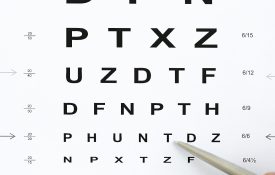-
New Research From Psychological Science
Read about the latest research published in Psychological Science: Alpha-Band Oscillations Enable Spatially and Temporally Resolved Tracking of Covert Spatial Attention Joshua J. Foster, David W. Sutterer, John T. Serences, Edward K. Vogel, and Edward Awh It has been suggested that oscillatory activity in the alpha-frequency band is integral to spatial attention; research shows that alpha-band activity tracks the specific location a person is attending to. However, a key untested prediction of the relationship between alpha-band oscillation and spatial attention is that the topography of alpha-band activity also tracks the time course of covert orienting.
-
New Research Finds Lonely People Have Superior Social Skills
NPR: Intuitively, many of us might think lonely people are lonely because they have poor social skills. New research turns this thinking on its head and offers a potential cure for loneliness. A number of experiments find, Audie, that when you bring people into a laboratory, people who are lonely are actually better at detecting social cues, reading expressions and being generally plugged into the social world than people who aren't lonely. I was speaking with Megan Knowles. She's a psychologist at Franklin & Marshall College. And she told me that she and her colleagues, Gale Lucas, Roy Baumeister and Wendi Gardner, were drawn to a paradox here. Read the whole story: NPR
-

Visual Illusion Could Help You Read Smaller Font
Visual acuity is thought to be dictated by the shape and condition of the eye but new findings suggest it may also be influenced by perceptual processes in the brain.
-
How Vanity Could Save the Planet
The Atlantic: Whether you follow a vegan diet or are a devoted carnivore, carry canvas or plastic, you are one of 7.5 billion people. The ecological effect of your choices is minuscule. And yet they have a big effect on how others see you, and how you see yourself. Psychologists found that prodding people to worry about social status increased their interest in buying green versus nongreen items—but only if they were shopping in public. People in Washington State and Colorado were willing to pay a premium of $430 to $4,200 (results varied by zip code) for the green-signaling Prius over an equally efficient car that didn’t broadcast its virtue Read the whole story: The Atlantic
-
One Way to Make Better Decisions: Rely on Your Imagination More Than Your Willpower
New York Magazine: Maybe you can relate to this particular struggle: When the alarm goes off in the morning, some people use the snooze button for five more sweet, sweet minutes of sleep. I use it for 30 of them, give or take. I gorge on the snooze button. It’s gotten so bad that I now set my first alarm for much earlier than I actually need to be awake, just so I can keep on snoozing a little while longer. Yes, I know I really should be getting up and starting the day and all that, but it’s so hard when you’re just so cozy. Which might actually be the root of the problem: I’m thinking about the trade-offs all wrong.
-
Some People Are Great At Recognizing Faces. Others…Not So Much
NPR: Every day, Marty Doerschlag moves through the world armed with what amounts to a low-level superpower: He can remember a face forever. "If I spend about 30 seconds looking at somebody, I will remember their face for years and years and years," he says. ... "I think nobody really knew until the last few years just how bad we all are with unfamiliar faces," says Mike Burton, a professor of psychology at the University of York UK. Burton has run a number of facial recognition studies and has concluded that most people are remarkably bad at recognizing the faces of those they know only slightly. And to make matters worse, most people think they are good at this skill when they are not.

